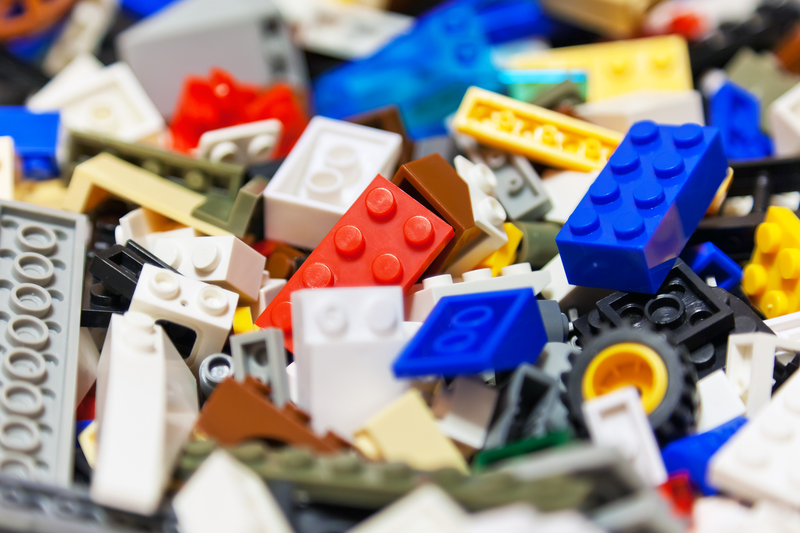Smart Ways to Dispose and Recycle Your Old Pots and Pans
If your kitchen cabinets are cluttered with worn-out, scratched, or mismatched cookware, you're not alone. Old pots and pans seem to gather like dust bunnies, but tossing them in the trash is far from eco-friendly. Fortunately, there are *smart* and planet-friendly options for disposing and recycling your old pots and pans. Whether your cookware is made of aluminum, stainless steel, nonstick, or even copper, there are sustainable solutions to give them new life beyond your kitchen.

Why Proper Disposal of Old Pots and Pans Matters
Many people overlook the impact old cookware can have on the environment. Improper disposal often ends up in landfills, where metals and synthetic coatings can take hundreds of years to break down. In addition, non-biodegradable materials may leach harmful chemicals into the soil and water supply.
Recycling pots and pans not only conserves resources but also helps decrease the demand for raw materials. By finding sustainable ways to dispose of your pots and pans, you're making a conscious choice toward a greener planet and often helping your community.
How to Tell If Your Old Pots and Pans Are Recyclable
Before you commit to recycling or repurposing your cookware, you need to identify what materials your pots and pans are made from. Most are constructed from:
- Aluminum
- Stainless Steel
- Copper
- Cast Iron
- Nonstick (Teflon or ceramic coating)
*Check for recycling symbols* -- if present -- on the bottom, and look for any manufacturer's guidance. Ferrous metals (like cast iron and some steel) are often accepted at metal recycling centers, while nonstick coatings may limit recycling options.
Best Ways to Dispose and Recycle Old Pots and Pans
1. Curbside Recycling Programs
Not all curbside recycling programs accept cookware, but some do--especially if the pans are free of plastic, rubber, or wood handles. Research your local recycling service and always check their policy. If accepted:
- Remove all non-metal parts (lids, handles, plastic knobs).
- Clean the pan to remove grease and food residue.
- Bundle small metal items together for easier processing.
*Note that nonstick pans* often aren't accepted due to their chemical coating, so check local regulations or consider other smart disposal methods.
2. Scrap Metal Recycling Centers
Scrap metal yards are superb choices for recycling old cookware. They accept most metals, including those found in pots and pans. Here's how to do it:
- Contact your local scrap yard to verify they accept cookware.
- Sort pans by type if possible: aluminum, stainless steel, copper, or cast iron.
- Remove all non-metal attachments for higher scrap value.
- *Ask if nonstick-coated pans are accepted,* as some facilities can separate or process Teflon coatings.
Tip: Some scrap yards even pay for metal by weight, so your recycling effort could earn you a few dollars!
3. Donate Usable Pots and Pans
If your cookware is still functional (not heavily scratched, warped, or rusted), think about donating it. Several organizations, such as Goodwill, Salvation Army, or local rescue missions, welcome gently used pots and pans. Other options:
- Charity thrift stores
- Homeless shelters
- Community kitchens
- College students or first apartments
Donating increases the lifespan of your cookware, reducing environmental impact and supporting people in need. It's a win-win!
4. Repurpose Your Old Pots and Pans Creatively
Before dumping your old cookware, think about *creative reuse*. With a little imagination, you can give your pans a new role, such as:
- Planters or flower pots - Drill a few drainage holes and fill with soil.
- Bird feeders - Hang on a tree for outdoor charm.
- Storage containers - Use cleaned pans to organize garage goodies or craft supplies.
- Decor - Paint and decorate for rustic kitchen wall art.
- Party props or costumes - Turn old pots into medieval helmets or quirky hats for a themed party.
Repurposing not only reduces waste but can add a unique flair to your home or garden!
5. Return-to-Manufacturer Recycling Programs
Some cookware brands and retailers have take-back programs. These initiatives ensure sustainable disposal through reprocessing or recycling. For instance:
- TerraCycle partners with certain brands for cookware recycling.
- Calphalon and other brands occasionally run recycling drives.
- Some specialty kitchen stores may collect used cookware during Earth Month promotions.
Check your pan's brand website for details or reach out directly to customer service. Participation in these programs guarantees responsible recycling.
Specific Recycling Solutions by Material
Recycling Aluminum Pots and Pans
Aluminum cookware is highly recyclable. Curbside programs or scrap yards are top options. Remove plastic, wooden, or rubber parts before recycling. If your pan has a nonstick coating, double-check with the recycling facility; some require the coating to be removed first.
Recycling Stainless Steel Cookware
Stainless steel pans are in demand at scrap yards and metal recycling programs. Clean thoroughly and strip away any non-metal accessories to optimize their recyclability. Many local recycling centers prefer stainless steel sorted by itself.
Disposing of Nonstick Cookware
*Nonstick pans* present unique challenges due to Teflon or similar coatings. Most curbside programs don't accept them, but:
- Scrap yards may take nonstick items if the metal can be separated during processing.
- Mail-back recycling programs like TerraCycle specialize in hard-to-recycle cookware.
- Look for periodic recycling drives at larger retailers.
Never incinerate nonstick pans as burning the coating releases harmful chemicals.
Recycling Cast Iron Pans
Cast iron is robust and highly recyclable. However, consider restoring or donating before recycling, as many cast iron pans can be revived with seasoning. When recycling:
- Bring to a metal recycling center or scrap yard.
- Ensure pans are free from food debris and thoroughly dried.
Recycling Copper Pots and Pans
Copper is valuable to metal recyclers. Some pans only have copper plating while others are solid copper, so check your pan's construction. Remove handles and add-ons before recycling for greater value.
Eco-Friendly Disposal: What Not to Do
- Don't put old cookware in general waste. Landfill isn't a sustainable option.
- Don't burn pans - this is hazardous, especially with nonstick coatings.
- Don't recycle pans with your glass, plastic, or paper curbside bins unless your city explicitly permits it.
- Don't donate unsafe cookware (heavily chipped, rusted, or with loose handles) that could pose a hazard to others.
Helpful Tips for Recycling Old Cookware
- Identify the material for correct recycling or disposal pathway.
- Remove non-metal parts to maximize recyclability and value.
- Clean thoroughly--recyclers prefer uncontaminated scrap.
- Always check local regulations -- recycling guidelines vary.
- Explore upcycling - Pinterest and DIY blogs offer unlimited ideas!
Other Sustainable Options for Old Pots and Pans
Freecycle and Online Giveaway Platforms
Platforms like Freecycle, Craigslist, Facebook Marketplace, or Buy Nothing groups connect people looking to dispose of reusable goods with those in need. List your old pots and pans--someone might find them valuable!
Community Scrap Drives
Keep an eye out for community clean-up days or local scrap drives. Many neighborhoods organize events to collect old metal items to support local schools or charities--your cookware could contribute!
Environmental Benefits of Recycling Old Cookware
- Saves energy and raw materials: Recycling metals uses less energy than mining new ore.
- Reduces landfill waste: Keeps non-biodegradable items out of landfill.
- Limits pollution: Prevents harmful chemicals from leaching into soil and water.
- Promotes community sharing: Donated cookware benefits families in need.

Frequently Asked Questions
Can Teflon pans be recycled?
Most curbside programs won't accept Teflon pans. Some scrap yards will take them or you can use a mail-back recycling program like TerraCycle.
Is it safe to donate old cookware?
Yes, if the pan is in good working order (no peeling or damaged nonstick coating, no loose handles), donation is safe and helpful.
What should I do with lids and handles?
Metal lids can generally be recycled with pans. Plastic or wooden handles should be removed and disposed of according to your municipality's guidelines.
Can ceramic pans be recycled?
Pure ceramic (without metal) usually can't be recycled curbside. Some creative upcycling options or specialty facilities may exist in your area.
Conclusion: Choose Smart, Eco-Friendly Solutions for Old Pots and Pans
Disposing and recycling your old pots and pans doesn't have to be difficult or unsustainable. From recycling centers and manufacturer programs to creative DIY projects and donations, there are plenty of smart ways to give your cookware a new lease on life.
By choosing environmentally conscientious solutions, you'll reduce your ecological footprint, help communities, and maybe even spark a fun new hobby. Next time you clean out your kitchen, remember these smart ways to recycle and dispose of old pots and pans--because every little action adds up to a healthier planet!
